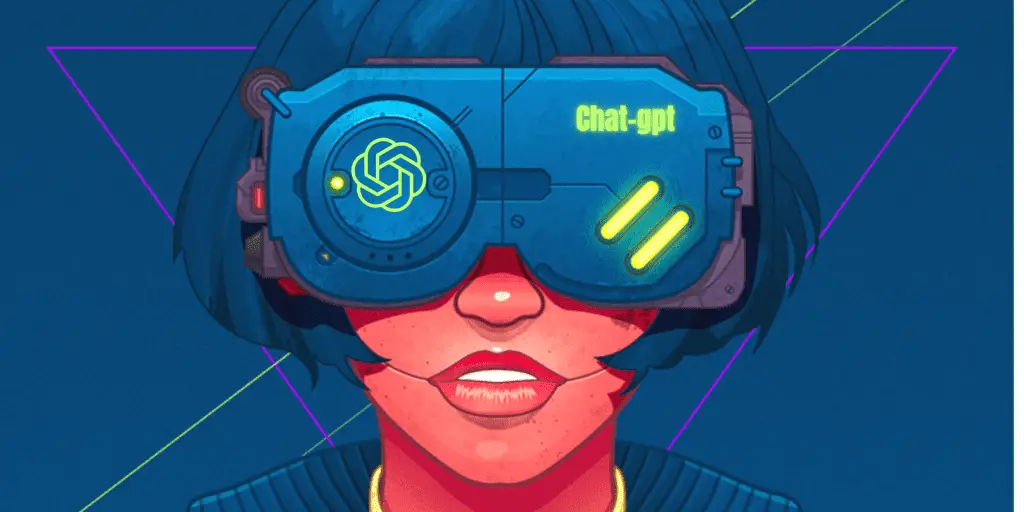Open AI’s GPT Store, an innovative and potentially game-changing platform that is poised to transform the landscape of artificial intelligence. With the evolution of Generative Pretrained Transformers, popularly known as GPTs, from the likes of GPT-3 to the more sophisticated GPT-4, the world of AI has witnessed remarkable advancements.
At the heart of the GPT Store is a vision – a vision to democratize the development of AI applications. Whether you’re a budding entrepreneur, a creative individual with a unique idea, or a company looking to leverage AI for specific needs, the GPT Store opens up a realm of possibilities.
Imagine creating a GPT that’s been trained on your personal recipe collection or developing an AI tailored to your business’s unique requirements – all without requiring extensive coding experience.
Background of GPT Technology
The Genesis of GPT
The GPT saga began with the inception of GPT-1 by Open AI. It was a novel approach to language understanding and generation in AI. Unlike its predecessors, GPT-1 leveraged unsupervised learning, allowing it to generate coherent and contextually relevant text based on the input it received.
GPT-2
Building on the success of GPT-1, GPT-2 emerged as a more powerful model. It was larger, not just in terms of its data-handling capacity but also in its ability to understand and generate more nuanced and complex text.
GPT-3
GPT-3 took the world by storm. With its 175 billion machine learning parameters, it was exponentially more powerful than its predecessor. GPT-3’s ability to generate human-like text, answer queries, translate languages, and even write creative content opened up new possibilities for AI applications
GPT-4 and Beyond
The evolution continued with GPT-4 and possibly beyond. Each iteration has not only increased sophistication and capability but has also expanded the horizons of what AI can achieve. With every version, GPT technology has become more adept at understanding and generating human language, making it an invaluable tool across numerous domains.
Concept and Vision of the GPT Store
At its core, the GPT Store is about democratization. The idea is simple yet revolutionary: to make the advanced capabilities of GPT models accessible to everyone, regardless of their technical expertise. This platform allows individuals and businesses to create bespoke AI applications, harnessing the power of models like GPT-4.
Customization at Its Heart
One of the pivotal features of the GPT Store is customization. The platform empowers users to tailor AI models to their specific needs. Whether it’s a small business owner looking to automate customer service or a teacher aiming to create an educational chatbot, the GPT Store offers the tools to make these ideas a reality
Vision
The vision behind the GPT Store goes beyond just providing a service; it’s about fostering a community of innovators. Open AI envisions a future where AI development is not restricted by technical barriers. The GPT Store aims to be a catalyst for innovation, where individuals from diverse backgrounds can contribute to the AI landscape, bringing in fresh perspectives and ideas.
Bridging Gaps and Expanding Horizons
The GPT Store is designed to bridge the gap between complex AI technology and practical, everyday applications. By simplifying the process of AI development, OpenAI intends to expand the horizons of what can be achieved with AI.
Empowering Creators and Entrepreneurs
Lastly, the GPT Store is about empowerment. It’s about giving creators, entrepreneurs, and businesses the power to harness AI for their benefit. This empowerment is not just creative but also economic, as the platform opens up new avenues for monetization and business opportunities in the AI space.
Features of the GPT Store
Custom GPT Creation
User-Driven Customization: Users can develop their own GPT models tailored for specific purposes. This feature democratizes AI development, making it accessible to a wide audience.
Diverse Applications: From personal projects like a recipe recommendation system to professional tools for businesses, the scope for creating various AI applications is vast.
The GPT Builder Tool
The GPT Builder allows users to define the capabilities of their AI in plain language, removing the complexity traditionally associated with AI development.
This tool is designed for users regardless of their coding expertise, making AI development more inclusive.
Marketplace Integration
Publication and Visibility Once developed, GPTs can be published on the GPT Store, making them searchable and accessible to a wider audience.
GPTs can be categorized into various segments like education, entertainment, and productivity, enhancing discoverability.
Monetization Opportunities
Creators of GPT applications have the potential to earn revenue, though the exact model (direct sales, subscriptions, or revenue sharing) is yet to be fully detailed.
Creator Incentives Open AI plans to financially reward creators of popular and useful GPTs, fostering a community of motivated developers.
Compliance and Ethical Standards
Adherence to Policies: Developers must ensure their GPTs comply with Open AI’s usage policies and ethical guidelines

Potential Impact
Democratization of AI Technology
By making AI development accessible to a wider audience, the GPT Store could lead to an influx of diverse AI applications tailored to niche and general markets alike.
Empowerment of Non-Technical Creators: Individuals and businesses without deep technical expertise can now participate actively in AI development, breaking down traditional barriers.
Innovation and Creativity
Fostering Innovation With the ease of creating custom GPT models, there is likely to be a surge in creative and innovative AI solutions across various domains.
Diverse Application Development The store could catalyze the development of AI applications in untapped areas, potentially leading to breakthroughs in fields like education, healthcare, and entertainment.
Economic Opportunities
New Revenue Streams The monetization aspect of the GPT Store opens up new avenues for entrepreneurs and developers to generate income through AI technology.
Growth of AI Startups Easier access to advanced AI technology could lead to the rise of new startups and small businesses focused on AI-based solutions.
Impact on AI Research and Development
Real-World Data and Feedback: The widespread use of custom GPTs can provide valuable data and user feedback, driving further advancements in AI research.
Collaborative Development: The platform could foster collaboration between AI researchers, developers, and end-users, leading to more user-centric AI advancements.
Ethical and Responsible AI Use
Setting Standards: The compliance requirement for listing on the GPT Store could set new standards in ethical AI development and usage.
As more people engage with AI through the GPT Store, it could lead to greater public awareness and understanding of AI, including its benefits and challenges.
Challenges and Considerations of the GPT Store
Quality Control and Consistency
Ensuring High Standards: With a wide range of creators, maintaining a consistent standard of quality and functionality in GPT applications will be challenging.
Implementing effective mechanisms to monitor and evaluate the GPTs listed in the store is essential to ensure they meet the required standards.
Ethical Concerns and Misuse
There is a risk of GPTs being used for unethical purposes or spreading misinformation. Ensuring that these tools are used responsibly is a significant challenge.
AI models, including GPTs, can inadvertently learn and perpetuate biases present in their training data. Actively working to identify and mitigate these biases is crucial.
User Privacy and Data Security
As GPT applications may handle sensitive user data, ensuring robust data privacy and security measures is critical.
Compliance with Regulations: Adhering to global data protection regulations, such as GDPR, is necessary and can be complex, especially for a diverse range of creators.
Technical Limitations and Scalability
Handling Technical Constraints: As more users create and deploy GPTs, managing the technical load and ensuring scalability poses a challenge.
Resource Allocation: Ensuring adequate computational resources for a potentially large number of GPT applications while keeping costs manageable is another consideration.
User Accessibility and Support
Making the platform and the GPTs created on it accessible to all users, including those with disabilities, is an important challenge.
Offering sufficient support and resources to a wide range of creators, especially those new to AI is essential for fostering a productive ecosystem.
Anticipated Release and Future Prospects of the GPT Store
Anticipated Release
The GPT Store is expected to be launched around the end of 2023 or early 2024. The exact date, however, has not been specified and is subject to confirmation by Open AI.
Initial Offering: Upon release, the GPT Store is likely to showcase an array of features and capabilities, as detailed in its initial announcement, setting the stage for future expansions.
Future Prospects
As AI technology continues to evolve, future versions of the GPT Store are expected to incorporate more advanced and efficient AI models, enhancing the capabilities of the applications developed on the platform.
Growing User Base: The store is likely to attract a diverse range of users, from tech enthusiasts to business professionals, expanding the community of AI developers and users.
With time, the GPT Store is anticipated to see an expansion in the range of application areas, potentially including more specialized and industry-specific AI solutions.
The platform could significantly impact the AI market, potentially leading to new business models and revenue streams in the tech industry.
The store may also become a hub for collaborative innovation, where ideas and resources are shared among creators, users, and AI researchers, leading to more user-centric and impactful AI solutions.
Final Thoughts
As we stand on the cusp of the launch of OpenAI’s GPT Store, it’s clear that we are witnessing a pivotal moment in the evolution of artificial intelligence. This platform is not just a new product; it represents a fundamental shift in the way AI technology is developed, accessed, and utilized. By democratizing the creation and monetization of AI applications, the GPT Store has the potential to usher in a new era of innovation and accessibility in the field of AI.
The anticipation surrounding the GPT Store is a testament to the transformative power of AI. As we look forward to its launch and beyond, it’s clear that the GPT Store is poised to not only change the landscape of AI development but also to empower a new generation of innovators and creators. This is just the beginning of a journey towards a more inclusive and innovative future in AI.


